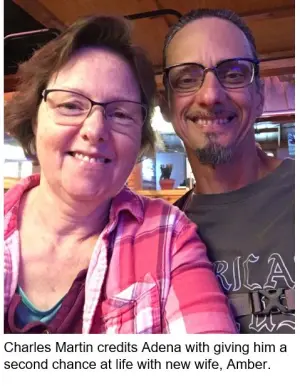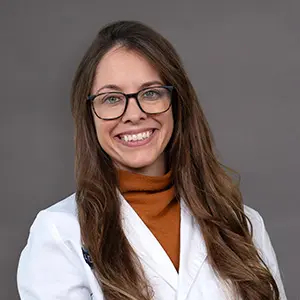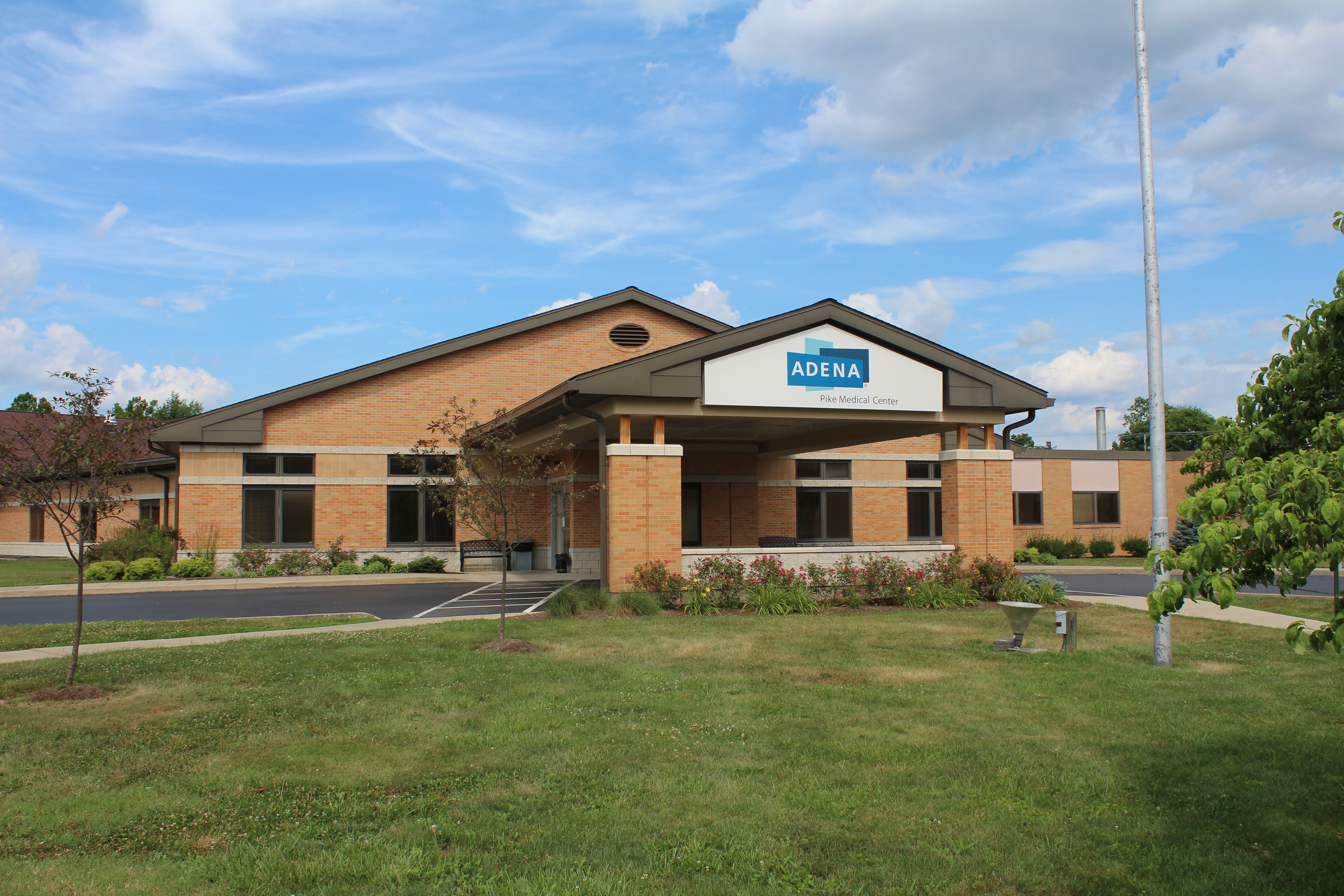Adena's Cardio Commitment Offers Fresh Chance at Life

Charles Martin always knew that a family history of heart disease put him at higher risk than most, but that knowledge still couldn’t prepare him for what he would experience on March 23, 2020.
“I was tired that evening before,” he recalled. “I was on vacation so I mowed three yards that day, got home and went to bed a little early, then got up and took a shower. I got out of the shower and everything just hit – pain across the chest and down my back and up my jaw and my legs just went out and I got real confused and didn’t know what to do.”
His first thought was to call his future wife, Amber, who raced him to Adena Regional Medical Center.
“It’s really strange,” he said of the brief period of time waiting for her to arrive. “They say when you’re dying, you can actually feel your life slipping away, and I did. My breathing got shallower and I was sitting here thinking this is it, I’m going to die before she gets here.
“The ER team at Adena saved my life, the STEMI (ST Elevation Myocardial Infarction) team saved my life, the nurses who provided around-the-clock care for me in the ICU saved my life and Dr. Gowtam Ravipati saved my life.”
Charles, who was 54 at the time -- coincidentally the same age as his mother when she died of a massive heart attack -- met Dr. Ravipati for the first time in the Intensive Care Unit the morning after his life-saving procedure. In the months to come, as COVID-19 took hold in the community and many in-person office visits were temporarily put on hold, the physician would become a lifeline for his patient.
Charles received a couple of stents to improve blood flow to the heart, but the heart muscle wasn’t responding in the hoped-for way. His blood pressure remained low and he was having difficulty tolerating the medications being tried.
“So even during the heart of COVID when everything was going to telehealth, I saw him every month – in person because I didn’t feel comfortable not seeing him -- and kept in touch with him weekly,” said Dr. Ravipati, shown at right.
“He made it a point to see me because I think he knew how bad I was and that he needed to talk with me face to face and try to make things better,” Charles said. “So, during COVID, he kept seeing me and I thought that was just awesome of him, he’s a great doctor.”
Charles was able to stay out of the hospital with the help of cardiac rehab activities at home, but went into a depression as his very active life of working eight hour days followed by servicing several lawns during the afternoon was drastically altered.
“They say your life can change within seconds, and mine did,” he said. “Within seconds, the life I knew was over and I had to try to figure out how to survive with this new life.”
There was more to come, however, as he developed bronchitis, then two weeks later was diagnosed with COVID-19 with double pneumonia and bronchitis compounding the heart issues.
“Dr. Ravipati was doing everything he could to regulate my medication, but the heart was just so destroyed,” Charles said.
Not wanting to wait any longer and recognizing the severity of Charles’ heart condition, Dr. Ravipati referred his patient to The Ohio State University’s Richard M. Ross Heart Hospital to see if he would be a candidate for a heart transplant.
“For a doctor to admit that he needs assistance, that’s awesome, I regard him as top-notch,” Charles said. “But Dr. Ravipati still wanted to see me, so he’d keep in touch with the cardiologists at Ohio State and they would communicate what was going on, that’s how much caring there was. Dr. Ravipati loves his patients, he cares about his patients. He doesn’t see a face or number, he sees a person, and that’s a big, big deal.”Dr. Ravipati said sometimes physicians have to recognize when they’ve done everything they can for a patient and ask for help, but that also means staying invested in the quality of the patient’s care.
“It’s a matter of having that connection, that communication with other providers,” he said of the collaboration that is saving Charles’ life. “I stayed with Charles for the past year-and-a-half, and even when I sent him to Ohio State, I still talked with the Ohio State cardiologist, I still talked with Charles after each office visit.”
Charles married Amber in October, but his other plans remain fluid as his bags are packed and he’s ready for the phone to ring calling him in for a heart transplant operation, which he’s been told could come at any time.
While he waits, he said he regularly thinks about how grateful he is to the team at Adena and especially to Dr. Ravipati for saving his life and making the likelihood of a transplant a reality. He also suggests insurance companies encourage and approve potential life-saving preventative testing for those with family histories of specific illnesses and has some advice for everyone about keeping an eye out for even the smallest sign of trouble.
“Listen to your body, listen really, really closely because it knows when something’s happening and it’s going to tell you,” he said. “If you ignore it, it will end up in a bad way. Sometimes it’s very small and you think it’s indigestion or you think you’re just tired, but your body’s telling you something.”
Dr. Ravipati offers the same advice to his patients and expressed his appreciation for patients like Charles.


Quality of Adena Pike Medical Center’s acute stroke ready care recognized with certification renewal